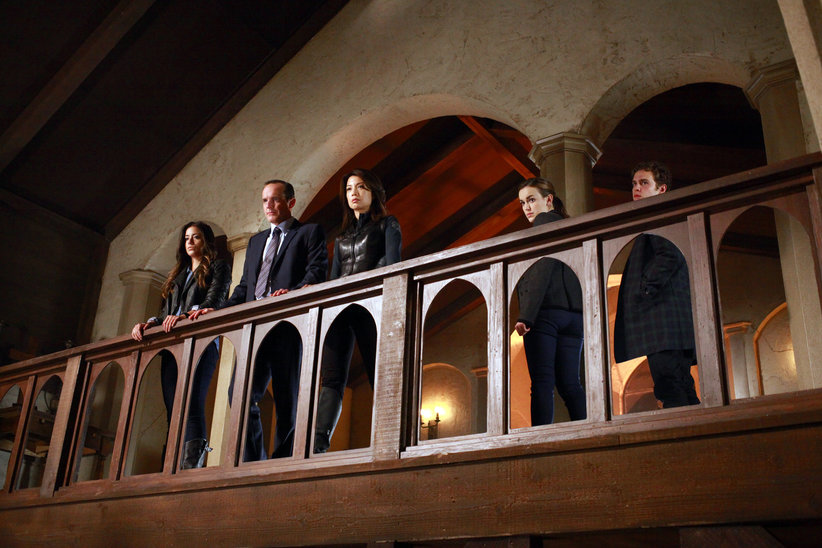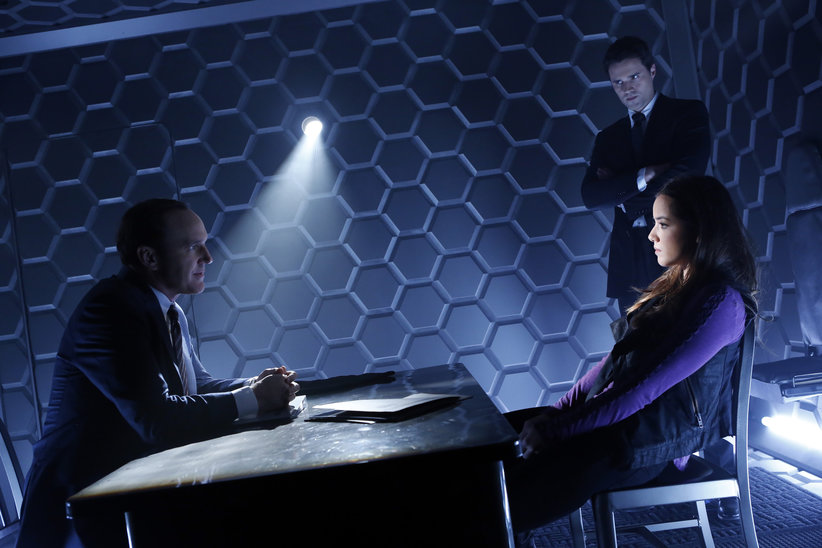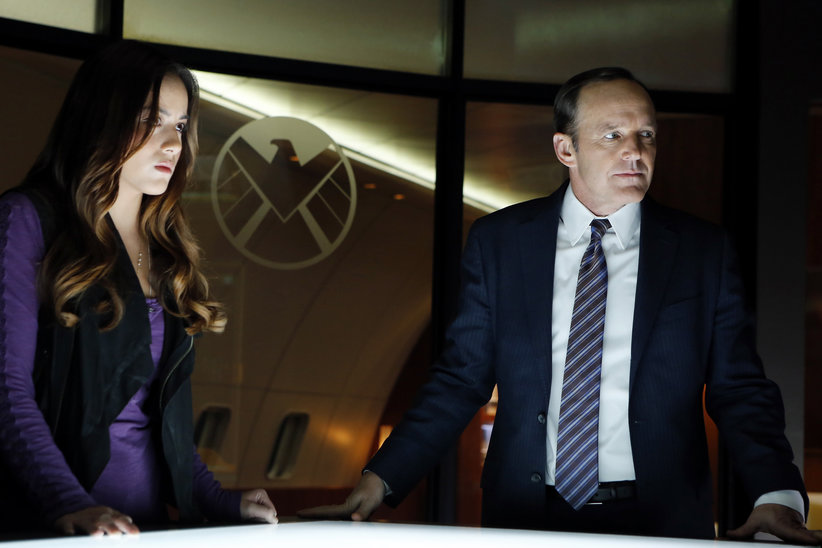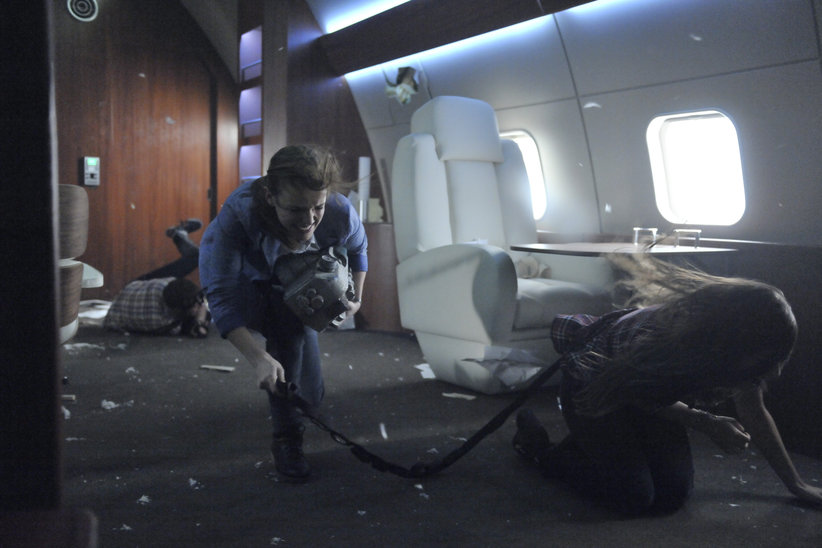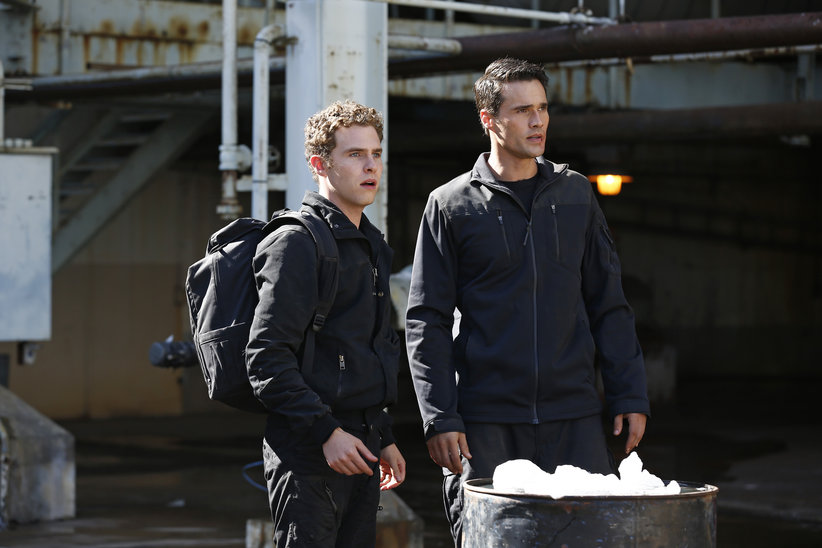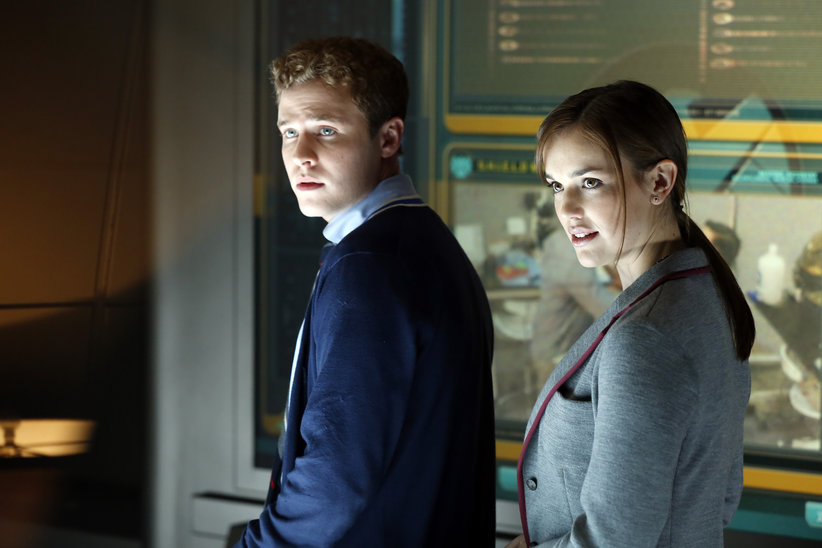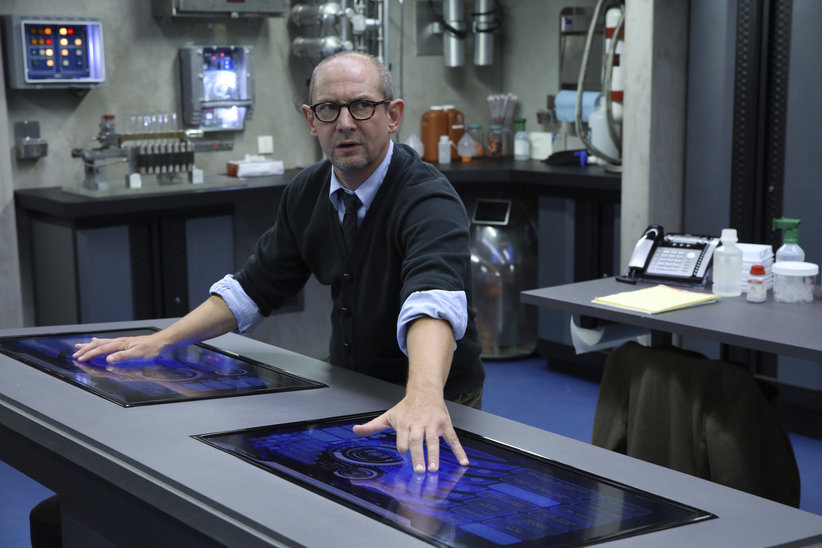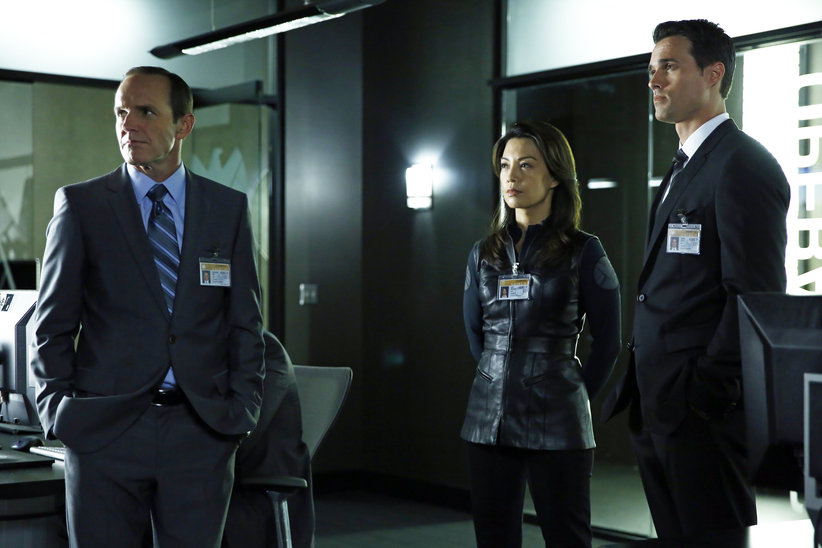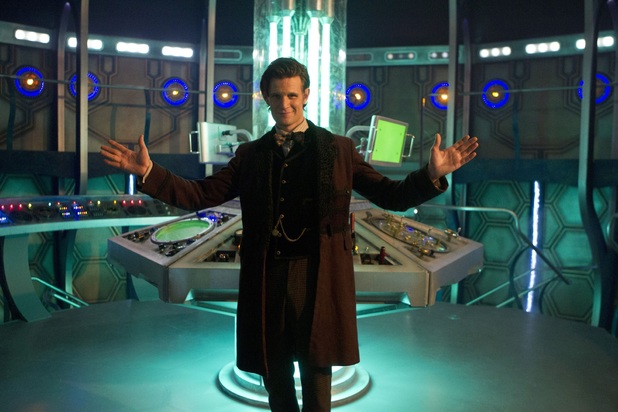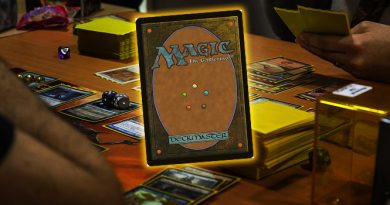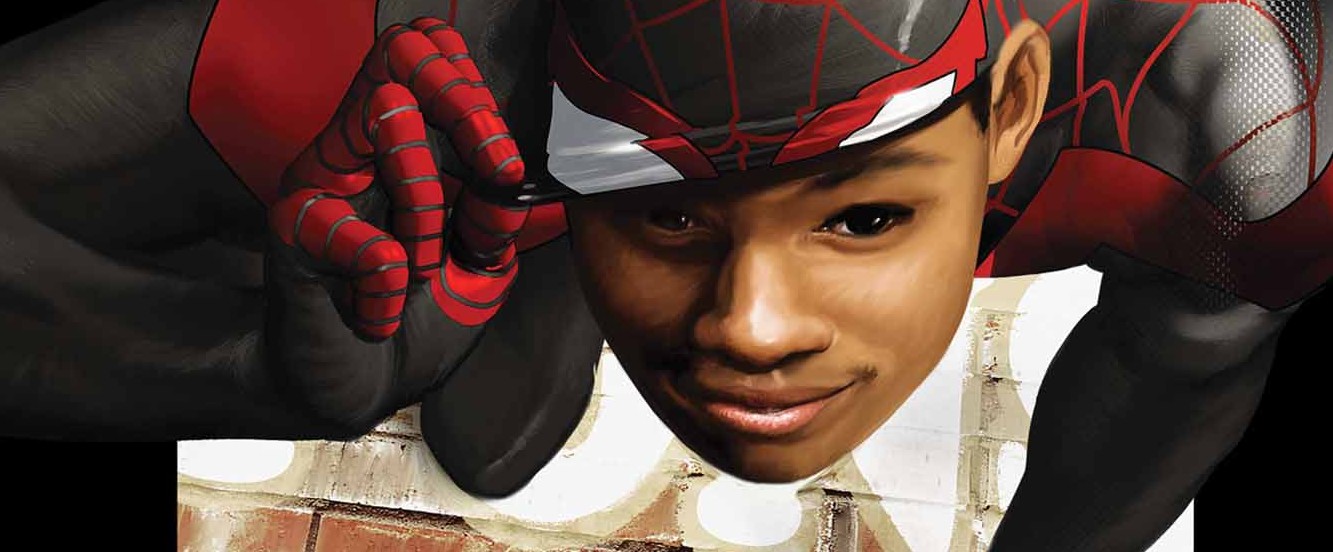Think of AGENTS OF S.H.I.E.L.D. as a Trilogy

Marvel’s Agents of S.H.I.E.L.D. is not the show you were expecting, even though it’s the show you were told you’d get.
This has come up in discussion on Level Eleventy-Seven, and has been referenced in several places (like this article in Forbes). The show is about the normal people living in a world of superheroes. It’s not about superheroes. And that has people complaining that they’re not seeing enough superheroes. The dramatic falloff of audience from week to week during the first few episodes was very telling, even though ABC and Disney aren’t going to kill the show anytime soon. And people seem to forget that a lot of television shows have rocky first seasons while everyone gets used to everyone and stories shake out into what actually works.
RELATED: Listen to our podcast about the show
But let’s look at it through a different lens, shall we? What if we’ve been told not one story this season, but three? Think about it this way: in every superhero movie series, you always have to have the origin film first, right? Spider-Man, Batman Begins, The Amazing Spider-Man, Iron Man, Captain America: The First Avenger, Buffy the Vampire Slayer… the list is quite long, and all of them start out with the story that gets the hero into the suit. We have to have this story (although this story gets told so many times anymore, it’s almost overdone by now, but that’s another topic).
So, what happens after the origin story in the first movie? The second movie gets a little darker, introduces more of a threat, stretches the characters some to shape them into what ultimately they will be for the rest of the series. Superman II, The Dark Knight, Spider-Man 2, Iron Man 2, take your pick on the seasons of Buffy, Serenity (which could be argued to be the second act following Firefly)… all have that darker tone. There’s a reason why so many sequels get compared to The Empire Strikes Back. It’s because this has become the second act of a three-act play, and the second act always gets darker and more grim for the hero. The stakes are higher, the danger is elevated.
And then the third film is where the production team really gets to spread out a bit and tell the story they’ve been really wanting to tell since first taking on the franchise. (Either that, or the whole film series goes completely off the rails because too many people start to want a piece of it and interfere to the point where they ruin it.) This installment is where writers and directors can get a little experimental, pushing the characters — and the audience — because now there’s a trust in place. The audience knows producers aren’t going to completely botch it (unless they do), which gives the filmmakers a little latitude.
So, let’s apply that to Agents of S.H.I.E.L.D.
THE ORIGIN STORY
The first three episodes are the origin movie. We have to start putting the pieces into place, and the first of these pieces is Agent Phil Coulson. A good deal of time has to be spent establishing that yes, this is Coulson; and yes, he’s really not dead. Using Agent Maria Hill (again, sign of trust) to tell the audience “It’s OK. It’s really him.” says that the production team knows they have a big question to answer, and the hints left in the first couple of episodes show that Team Whedon is aware that they have to address it. But at the same time, while giving hints at the story underneath, they also have to get the audience familiar with a completely new set of characters. And so they use the shorthand of character tropes to bring in the Hero Type, the Science Geek, the Biology Nerd, the Quiet Warrior with a Past… and the Hacker.
These tropes instantly give us a passing familiarity with each of these characters, so we’re up to speed from the very start. Yes, they play a little thin at the start, but then we get to see the Geek Squad of Fitz and Simmons being action heroes in the second episode (even though they broke the plane), and Skye getting to improvise with circumstances outside her insulated keyboard-bound perspective.
Ward also gets to loosen up a bit, revealing some things about his past and why he joined S.H.I.E.L.D., even having a little bit of hero worship for Agent May. His training of Skye could have gone the very wrong and tropey path of romance, but it shakes out to feel more like a brother-sister vibe now.
THE SEQUEL STORY
Skye is the audience’s entry point into this team. She’s an outsider, and she functions as a way to get the audience up to speed on things as she becomes familiar with her surroundings. All the while reinforcing that we’re now in a world of superheroes, as personified by the perceived threat of Mike Peterson. So with the Peterson arc (act one), the Peru arc (act two), and the gravitonium arc (act three), we get several steps out of the way. Not only do we get an integrated team, but we also have set up threads for a major nemesis for the “sequel” down the road.
But we’re still not quite there yet. In order to tell the story we really want to tell, now we have to shift Skye from outsider status to being a fully-integrated member of the team. This started in “The Asset”, which serves as both the end of one three-hour arc and the beginning of a second. Skye now has to make choices that put her at odds with the team, and her decisions force her to examine her own motives for being there. The idea of Skye betraying the team takes us into a somewhat darker story environment, and the return of the science group (most likely AIM) from the first episode is a callback, and also structurally a piece that reminds the audience that there’s a broader story in the works.
In addition to that, Skye has to have redemption (some, anyway) in order to be really part of the team and no longer an outsider. Her fall from grace now puts the emotional connection between the audience and the team, rather than the audience and Skye (their proxy in the first “movie”). But she still has to be a sympathetic character, otherwise there’s no reason to keep her after betraying the team. So, as the Whedons introduce the idea that Skye has personal motives rather than devious evil-genius ones, we in the audience now have a fully-realized team.
Now they can tell the story they want to tell — what they’ve hinted at since the first episode — and that’s the story of Phil Coulson.
THE REAL STORY
We’re starting to see hints of it from episode six onward — the physical exam, the hints at muscle memory not quite up to snuff, the “being rusty” line. And in this most recent episode, the realization that “Tahiti is a magical place” may not be the memory he thinks it is. The patient audience (those that have stuck around) are now getting some payoff. The stories are better. The plots are a bit tighter. We’re getting to see a little more of the worldwide S.H.I.E.L.D. organization we see in the movies. And the writers now have time to go the rest of the season to play this out in a way that satisfies our curiosity.
Plus, we’re now getting a look at S.H.I.E.L.D. as a global organization, something we didn’t see very much in the first few episodes. And I think that’s for a reason. Looking at the trailer for Captain America: The Winter Soldier, and combining it with Coulson’s desire to have a team under the radar, outside the usual chain of command, it seems his team is being set up for a confrontation toward the end of the season. Even a line from Agent Blake seems to hint that S.H.I.E.L.D. will only put up with Coulson so far before they have to discipline him. When you combine that with his search for what happened in those “eight seconds” he was dead, plus the dark secret of Skye’s parents, you get an arc that’s going to lead to some pretty meaty scenes for Clark Gregg to chew.
Yes, this arc will also give us more depth to the rest of the team. Ward will get a personality, maybe. He’s actually loosened up around Fitz now that they’ve almost died together. Fitz and Simmons, meantime, have realized how much they mean to each other and will likely head down the romantic path we originally assumed would be taken by Ward and Skye. Of course, being a Joss Whedon show, someone is most likely going to die before the end of the season. We have a poll.
Leading us to the season finale, when we’re either going to find out the truth about Coulson, or there’s going to be a mighty big confrontation that leads to Team Coulson going rogue. We’ll have to see how it plays out. The fact that we’ve yet to see a major arc involving AIM means there’s one left to be had, probably this season. The end of “Girl in the Flower Dress” firmly establishes a larger organization at work, and we’ve just seen bits and pieces of it.
Take it for what it’s worth, but there’s my take on it. Don’t compare it to Arrow, which has already had a season to find its way. And don’t compare it to police procedurals, etiher, because those all have a common frame of reference that don’t involve superheroes or mutants. You have to take Agents of S.H.I.E.L.D. for what it is — what Team Whedon said it was from the outset — a show about normal people living in abnormal times and trying to cope.
In the meantime, tell your friends that the show’s finally found its feet.
![]()

